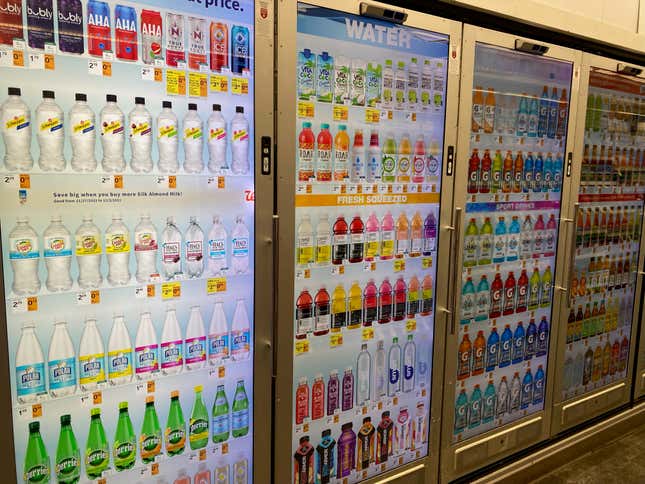
In This Story
In a high-profile experiment, Walgreens (WBA+0.23%) sought to modernize its stores by replacing traditional refrigerator doors with digital screens. The attempt failed.
The pharmacy giant partnered with CoolerX, formerly Cooler Screens, to install smart doors at hundreds of locations, hoping to generate ad revenue and improve customer engagement.
But the project quickly turned into a costly and disruptive flop. Widespread malfunctions, low returns, and a strained relationship with the tech startup led to a $200 million blunder, as Bloomberg first reported.
The smart doors replaced glass with digital screens that displayed virtual images and ads, some promoting Apple Pay (AAPL-0.39%). However, the screens frequently malfunctioned – either failing to load correctly, displaying incorrect products, or going completely blank. By Dec. 2023, many smart doors across Walgreens stores had stopped working entirely.
The failure wasn’t just technical. The data was unreliable, as CoolerX’s hardware frequently malfunctioned, while Walgreens’ outdated tech contributed to glitches. Despite the high installation costs, the digital doors generated minimal revenue. Walgreens reported that each screen brought in just $215 annually – far below expectations and less than half the agreed contract minimum, according to Bloomberg.
Faced with ongoing issues, Walgreens tried to terminate its contract with CoolerX. In response, CoolerX sued Walgreens for breach of contract, demanding $200 million in damages. Tensions escalated further when CoolerX cut data feeds to over 100 stores in 2023, leaving screens malfunctioning. In some locations, employees had to post handwritten signs to guide customers.
By 2024, Walgreens had had enough. The company removed the screens from its stores, completing the process by August of that year. The failure came at a time when Walgreens was already struggling financially, with 1,200 stores closures and declining sales. The company also became the worst-performing stock on the S&P 500 in 2024. In Dec., the pharmacy giant was in talks to sell its business to private equity firm Sycamore Partners, pushing shares up 20% on the news. Earlier this week, CEO Tim Wentworth admitted that locking up items behind glass shelves hurts sales.
Meanwhile, CoolerX is shifting its focus to software, partnering with retailers like Kroger (KR+0.91%) and Chevron (CVX-2.86%), which is using the software at various gas stations.
Walgreens and CoolerX did not immediately respond to Quartz’s request for comment.